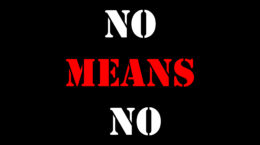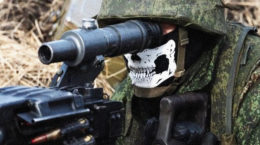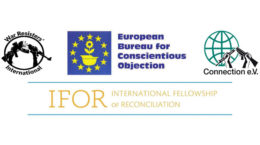The war in Ukraine has not only intensified geopolitical tensions but has also deepened the ongoing crisis of masculinity. The romanticization of militarism, coupled with the glorification of aggression and controla, has cemented an image of toxic masculinity as the ideal male archetype.
This model, rooted in violence and domination, has profound implications for both men and women. The current conflict has pushed many men into a deep existential crisis, as they grapple with an identity that prioritizes power and control over emotional vulnerability and empathy. The effects of this crisis are rippling through society, affecting social cohesion, gender relations, and even the prospects for long-term peacebuilding.
The Crisis of Masculine Identity and Its Broader Social Impact
The glorification of militarized masculinity has thrown many men into a crisis of identity. This crisis is not just personal but societal, with broader ramifications for entire social groups. Patriarchal attitudes, which often go hand-in-hand with militarism, are resurfacing, even in spaces that traditionally resisted such ideologies. For instance, Belarusian independent media, once a space for progressive discourse, now shows signs of embracing traditionalist and patriarchal values. Men who do not conform to the ideals of militaristic masculinity, such as those who object to war or those who do not meet traditional gender roles, are often marginalized.
The following groups are particularly affected by this identity crisis:
- Men Who Reject Militarism: Conscientious objectors, deserters, and those who leave the military on moral grounds face alienation and societal pressure. In a context where militarized masculinity is celebrated, men who choose a path of non-violence are often stigmatized, making their reintegration into civilian life even more challenging.
- Wounded Veterans: Combatants, especially those injured in conflict, face significant barriers to re-entering society. Many veterans, particularly those from the Kalinovsky Regiment and other Ukrainian units, struggle with guilt, mental health challenges, and societal pressure. The cultural taboo around discussing mental health in post-Soviet societies makes it even harder for these men to seek the help they need.
- Former Political Prisoners: Many Belarusians who have been imprisoned for their opposition to the government and then fled the country are now under pressure to engage in the military conflict in Ukraine. Their reluctance, whether due to fear or moral objection, often results in condemnation from the protest community.
- LGBTQ+ Men: Those who do not fit the traditional role of protector or warrior face exclusion and hostility. The rigid gender norms perpetuated by militarism create an environment in which LGBTQ+ men, who challenge these stereotypes, become targets of further marginalization and violence.
Impact on Women: The Spread of Violence and Exclusion
The crisis of masculinity is not limited to men—it has profound consequences for women as well. The reinforcement of toxic masculinity as the dominant male ideal exacerbates gender-based violence and exclusion. The normalization of violence in wartime leads to domestic violence being downplayed or ignored, especially when the perpetrator is seen as a hero, such as a former combatant or political prisoner. Women in such relationships often struggle to speak out against abuse due to societal reverence for their partners and the stigma surrounding mental health issues, such as PTSD.
- Domestic Violence: Women in families where the man is seen as a “hero” of the conflict often face unchecked domestic abuse. The public tends to overlook or excuse such violence, particularly when it stems from the psychological scars of war, leaving women vulnerable and unsupported.
- Hostility Towards Migrant Women: Women fleeing violence in Belarus, Russia, and Ukraine find themselves facing both physical and psychological aggression in exile. They are also subject to surveillance by state intelligence services such as the KGB and FSB, which increases their vulnerability. Women human rights defenders, particularly those working in exile, face constant threats and are often left without adequate support.
- Objectification and Exclusion from Decision-Making: The militarization of masculinity also marginalizes women from the political and decision-making processes. In Russia, women have been manipulated into supporting the war effort, while feminist voices advocating for peace and gender sensitivity are suppressed or misrepresented. It is crucial to uplift these feminist voices, especially those working to counteract the militaristic narrative.
- Neglect of Grassroots Initiatives: Women activists, especially at the grassroots level, are overwhelmed. They are left to manage tasks previously handled by the state, including supporting traumatized individuals. Their contributions, although critical, are often undervalued and unsupported, leading to widespread burnout.
- Marginalization of War-Traumatized Women: Women directly affected by the war, either through personal trauma or repression, are often left without sufficient mental health or social support. This leads to disengagement from leadership roles in their communities, further eroding the fabric of grassroots movements.
Harnessing the Potential of the International Peacebuilding Movement
The international peacebuilding movement holds untapped potential to address the crisis of masculinity and its impact on society. Organizations with expertise in trauma support, conflict resolution, and social reintegration are well-positioned to help those most affected by the crisis, including conscientious objectors, deserters, and traumatized combatants. However, regional governments are often ill-equipped to provide the necessary support, underscoring the need for international involvement.
Recommendations for Moving Forward
To address the crisis of masculinity and its broader societal impact, a multi-faceted approach is needed:
- Activate UN Resolution 1325: Women’s perspectives must be included in decision-making processes related to peace and conflict resolution. Their exclusion not only perpetuates patriarchal power structures but also limits the effectiveness of peacebuilding efforts.
- Support Marginalized Men: Special attention must be given to men struggling with patriarchal expectations, particularly conscientious objectors and deserters. Providing these men with the tools and resources for social reintegration is crucial for healing the societal rift caused by the war.
- Focus on Conflict Prevention and Trauma Support: Addressing the trauma of combatants and their families is critical for breaking the cycle of violence. Tackling domestic violence, particularly in families of former combatants and political prisoners, should be a priority.
- Strengthen Grassroots Initiatives: Women’s grassroots organizations, especially those focusing on trauma work, are essential for long-term peacebuilding. These initiatives require increased support to prevent burnout and ensure their continued operation.
- Promote Feminist Approaches: Feminist narratives must be amplified as a counterbalance to the patriarchal militarism espoused by leaders like Vladimir Putin. Empowering feminist peacebuilders can foster resilience against militarization and radicalization.
Conclusion
The crisis of masculinity, exacerbated by the war in Ukraine, poses a significant threat to societal cohesion and peacebuilding efforts. By engaging international peacebuilders, feminist communities, and grassroots movements, we can address these critical issues and pave the way for a more peaceful, inclusive, and gender-equitable future.












